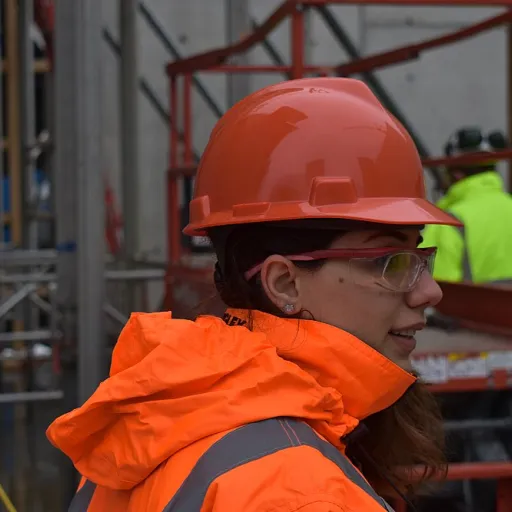
Understanding the Retail Landscape in the UK
Navigating the Retail Environment
The retail landscape in the UK is ever-evolving, shaped by the dynamic expectations of customers and the constant advancements in technology. This sector, characterized by its diverse offerings and the growing emphasis on digital platforms, demands meticulous management of real-time data and resources. Effective project management in this environment is crucial for ensuring seamless chain processes and enhancing customer satisfaction. Project managers must be adept at analyzing the inventory and supply chain processes to uphold the efficiency demanded by UK retailers. Customer service and inventory management are key components that contribute to achieving long-term success in the retail industry. Understanding these elements is imperative for formulating strategies that not only address current challenges but also pave the way for future progress. For those interested in further exploring career opportunities and enhancing their skill set tailored to this sector, one might consider reviewing available resources such as a career path exploration. Developing expertise in critical path analysis and task management will enable project managers to efficiently allocate time and resources, ensuring that each project aligns with broader business goals. By grasping the intricacies of the UK retail landscape, management can adopt a proactive approach to strategic planning, harnessing real insights from data to drive projects forward with efficacy and precision.Key Challenges in Retail Chain Project Management
Navigating the Complexities of Retail Chain Project Management
In the dynamic retail landscape of the UK, project managers face a multitude of challenges that require adept strategies and innovative solutions to succeed.- Diverse Retail Environment: Each retail project demands a nuanced understanding of varied concepts, inventory nuances, and customer dynamics. Within the UK, retailers operate distinct models, often leading to varied management methodologies, communication styles, and expectations.
- Inventory and Supply Chain Management: Ensuring a seamless supply chain process is vital for maintaining customer satisfaction and operational efficiency. Real-time data and resource tracking can mitigate inefficiencies and optimize inventory management. Understanding the "role of a corporate job" in this matrix can provide insights into operational tasks and enhance project planning.
- Team Coordination and Task Management: Effective task management is crucial for reducing bottlenecks and maintaining progress. Clear communication, both within management services and external partners, supports a shared understanding of critical path tasks and improves overall team efficiency.
- Real-Time Customer Feedback: The agile nature of retail requires an adaptable approach to project management. Constructive channels for real-time feedback foster an environment where customer experience can be continuously assessed and improved.
- Long-Term Strategic Goals: Aligning short-term projects with long-term business objectives is a strategy that ensures sustainable growth. Understanding customer behaviour, optimizing chain processes, and predictive planning are mechanisms to build a resilient retail project framework.
Strategic Planning for Retail Projects
Developing a Comprehensive Project Plan
Strategic planning is the backbone of successful retail projects. It involves a detailed understanding of the retail landscape and the unique challenges that come with managing a retail chain. A well-structured plan should address key elements such as resource allocation, time management, and task prioritization.
To begin with, project managers need to establish clear objectives that align with the overall business goals. This includes defining the scope of the project, identifying critical tasks, and setting realistic timelines. Utilizing project management tools can enhance efficiency by providing real-time data on progress and facilitating effective task management.
Resource Allocation and Inventory Management
Effective resource allocation is crucial for maintaining a smooth supply chain and ensuring customer satisfaction. This involves managing inventory levels to meet customer demand without overstocking, which can tie up valuable resources. Implementing inventory management systems can help retailers track stock levels in real time, reducing the risk of stockouts or excess inventory.
Additionally, project managers should focus on optimizing the supply chain processes to enhance efficiency. This includes coordinating with suppliers, managing logistics, and ensuring timely delivery of products. By streamlining these processes, retailers can improve customer service and boost overall customer experience.
Engaging Team Members for Success
Successful retail projects rely heavily on effective communication and team coordination. Project managers should foster a collaborative environment where team members are encouraged to share ideas and feedback. Regular meetings and updates can help keep everyone on the same page and ensure that tasks are progressing as planned.
Moreover, it's important to recognize the role of each team member and provide them with the necessary support and resources to perform their tasks efficiently. This not only boosts morale but also enhances productivity and contributes to the long-term success of the project.
For more insights on strategic planning and resource management, consider exploring the role of a member at large in UK companies.
Implementing Technology Solutions
Enhancing Efficiency with Technological Integration
In the dynamic retail landscape, implementing technology solutions is essential for effective project management and optimizing overall operations. Seamless integration of technology can considerably enhance efficiency, streamline inventory management, and improve customer satisfaction. Here are some ways to effectively incorporate technology in retail chain projects:- Real-Time Data Access: Embracing data-driven decision making by utilizing systems that provide real-time access to vital supply chain data ensures project managers can monitor progress and make informed decisions more efficiently. This helps in identifying potential roadblocks and optimizing resource allocation.
- Inventory Management Systems: Implementing inventory management solutions can drastically enhance the efficiency of supply chain processes. These systems provide insights into stock levels, predict inventory needs, and reduce issues related to overstock or stock-outs, ultimately leading to better customer service and satisfaction.
- Automating Routine Tasks: Automation can play a critical role in managing repetitive and mundane tasks. By automating operations such as order processing and list management, team members can focus on more strategic activities, improving overall productivity.
- Enhancing Communication and Collaboration: Adopting collaborative platforms fosters effective communication among team members. This not only ensures aligning critical tasks and timelines but also encourages sharing insights and resources across the retail chain.
- Utilizing Customer Experience Technologies: Implementing customer-centric technologies, such as digital touchpoints and personalized marketing approaches, helps improve customer interactions and engagement, enhancing the long-term success of retail projects.
Effective Communication and Team Coordination
Fostering Clear and Open Channels
Effective communication is the backbone of successful project management in the retail sector. It ensures that all team members are aligned with the project's objectives and can address any challenges that arise in real time. Establishing clear and open channels for communication helps in managing tasks efficiently and maintaining a smooth flow of information across the retail chain.
Utilizing Technology for Seamless Coordination
Incorporating technology solutions into your communication strategy can significantly enhance team coordination. Tools that offer real-time updates and data sharing can streamline task management and improve inventory management. This technological integration supports project managers in tracking progress and making informed decisions swiftly, ultimately boosting customer satisfaction and the overall customer experience.
Regular Meetings and Feedback Loops
Regular meetings are crucial for discussing project progress and addressing any issues that may impact the critical path of the project. These meetings should encourage feedback from all team members, fostering a culture of continuous improvement. By doing so, retailers can ensure that their supply chain processes remain efficient and responsive to any changes in the retail landscape.
Building a Collaborative Team Environment
Creating a collaborative environment is essential for long-term success in retail projects. Encouraging team members to share insights and resources can lead to innovative solutions and improved efficiency. This collaborative approach not only enhances the team's ability to meet project deadlines but also contributes to a more positive work environment, which is vital for maintaining high levels of customer service and satisfaction.













